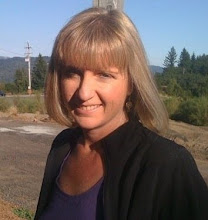Is it a bad thing that the current online state of affairs allows more amateurs to participate & create their own works? What do we give up and what do we gain by less demand for experts? Does this lower standards or lower the playing field? Is this democratization over a “dictatorship of expertise?” Or is it a watering down and a devaluing of experts? This is the subject of a book, “The Cult of the Amateur” by Andrew Keen that I read recently.
Should everyone be given an equal voice when submitting entries to Wikipedia? Can the masses police themselves and make sure the information is correct? Are we undermining the authority of experts when we empower the amateur? Google presents search results based on popularity of sites. Wisdom of crowds or skewed results?
While it’s easy to see that actual news could be obfuscated by the mass of voices crying out opinions, there are also times when these voices provide us the only access to news, particularly from news prohibiting countries. One could argue that traditional sources haven’t been all that reliable, being driven by their corporate overseers. The argument that traditional “respected” newspapers will deliver more accurate and reliable news just doesn’t work for me. That hasn’t been true for many years.
What about the concern over lost income on the part of professionals? With the proliferation of amateur talent online and pirated music downloads, how does a musician survive? Similar concerns were expressed when recorded music replaced live bands.
These concerns are valid and should be considered, but perhaps they reflect growing pains as we shift our culture. What’s good about the Web? Personal expression, creativity, participation, sharing of ideas. It’s also a way to save money by using free, easy to use online tools. As for the bad and worrisome parts, this is where librarians have a role to play. To point out fact from opinion, reliable source from just some guy in the blogosphere. While being aware of the bad aspects, let’s not throw away the good ones.

2 comments:
I suggest you read (as a followup) The Future of the Internet--And How to Stop It by Jonathan Zittrain who believes quite the opposite. In fact, he's much more concerned that we are not free enough to express our opinions.
I think I would agree more with Mr. Zittrain. I find it more useful to think about the possibilities.
Post a Comment